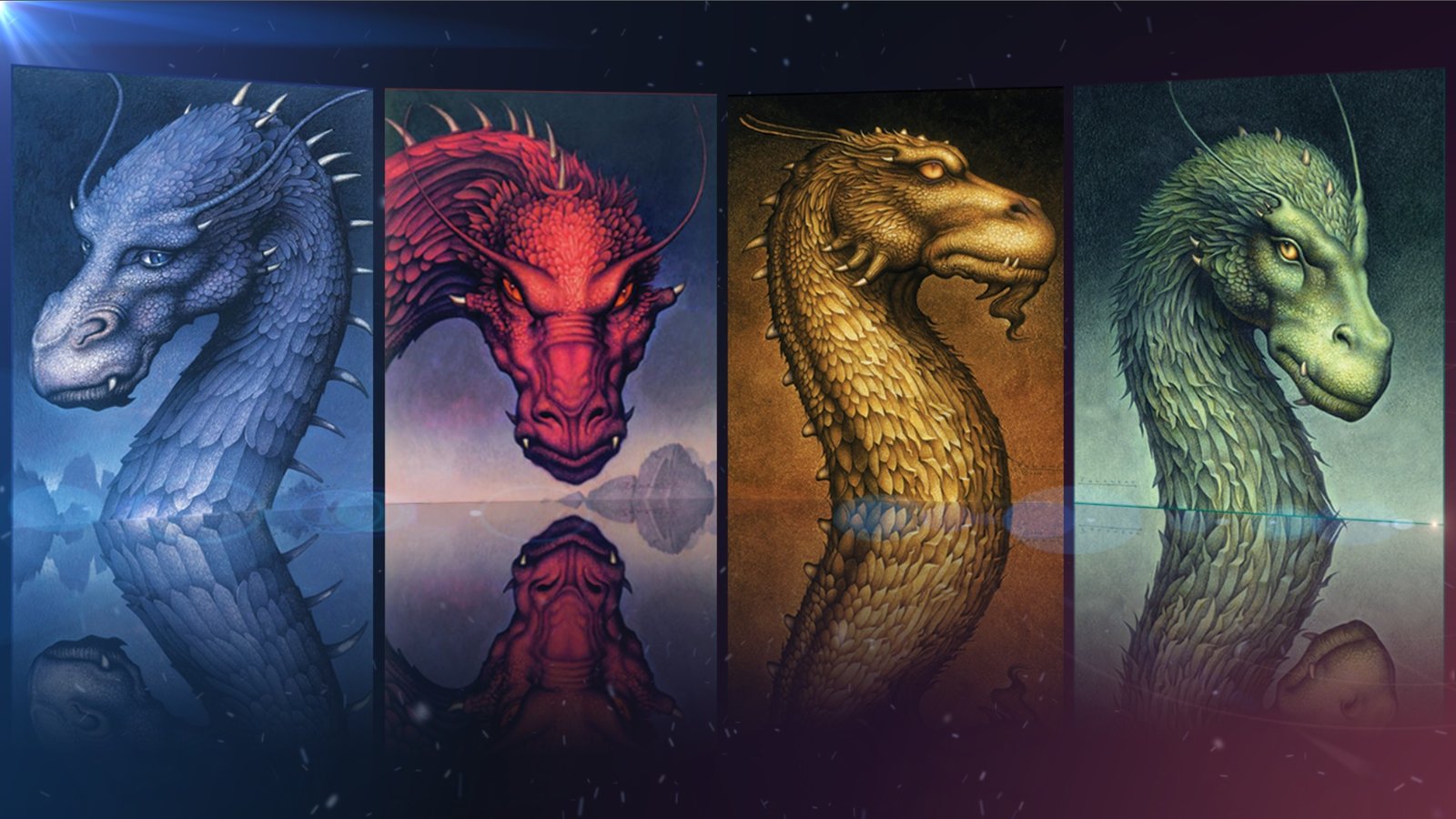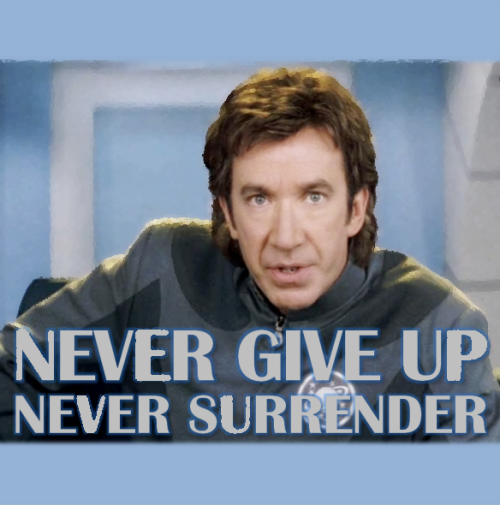
Never, in my entire reading career, have I been so disappointed with the ending of a series as I was with
Inheritance. Granted, after
Brisingr, my expectations were fairly low. But even then... *shakes head*
In order to rectify this grave dissatisfaction, I have developed "The Paolini Project". It will involve:
(1) Used copy of
Inheritance
(1) Red Pen (unless more are needed)
Yes, my friends. I intend to do the unthinkable. I will desecrate a book. I will destroy someone else's artistic work in order to satisfy my own, personal agenda.
Why would I do such a thing? How could a book lover and library employee stoop to such drastic vandalism?
Well, like I said, worst series ending EVER.
But in case that isn't convincing enough, here are a few more reasons:
- I own the first three in the series, and I like complete sets. But I just can not bring myself to own such a disappointing tome of uselessness.
- Though I waited for YEARS to get some closure on this story, I still am not satisfied. I need some good resolution.
- They forgot to run it by an editor before heading to the presses. The poor book is missing out on the good scrub down that most manuscripts get. We owe it to him.
- I work for free anyway.
- I'm seriously doing him a favor.
- Paolini deserves it. (See my diatribe below.)
- Normally, the last book of any series is my favorite, because I love watching everything come together. All the clues and story lines and drama finally merge into one epic explosion of awesomeness. Or at least they're supposed to.
Mainly it's the closure thing, though. I just can't let it go.
The Diatribe (Or, "things to address when I take my red pen to the book")
Have I mentioned all of the reasons why Christopher Paolini is on my black list forever? Well, actually I think I have. Several times. But I'm going to do it again. And if, by the end of this post, you are not convinced that my project is a most worthy and admirable cause, I shall here warn you not to read the next several posts. It may damage your soul to see what I am doing to this book.
1) Worst writing ever.
Here's the thing. Sure,
Eragon and
Eldest weren't the most amazing books ever. There were a lot of amateur mistakes and dreadful prose. And sure, it only got famous because mommy and daddy published it for him. But come on. The kid was 15 when he started writing a book that was good enough to make him rich and famous. And only 19 when it got published by knopf and became a NYT bestseller. That's cool!
And even more cool was the fact that there was a pretty decent story going on in there. I mean, no one's first-ever book is all that good. (Except for Rowling. And even then, HP book 1 is really not the best of the bunch.) But there was so much potential, and so much cool stuff. And it was pretty amazing for a 15 year old.
But books are supposed to get better, as authors write more. The ends are always better than the beginnings. The critiques, and the hard work, and all the publishing experience are supposed to mold a mediocre author into a decent one, and a good author into a great one.
At 15, it was awesome that Eragon was as good as it was. But at age 25 (after a ten year writing career), Brisingr failed to impress. In fact, the writing had already gotten slightly worse, because NYT bestselling authors don't have to make excuses for bad stuff or succumb to harsh editors.
And by age 28, when Inheritance came out, the writing which should have been an epic culmination of 13 years professional writing experience... well, it flopped. Bad. Inheritance is 800 pages long, and at least 300 of those pages are completely irrelevant.
I expect more from people who claim to be professional. I expect prose to be less painful than using "the sun slowly rose over the terminating line of the earth." What, you're too good for "horizon"?
One should always improve. One should not grow self-important and pretend like everything one does is perfection incarnate.
2) And yet... AND YET the first two were good enough that I needed to know what happened next. I needed closure. I needed to see how things resolved. Despite all of the imperfections, I NEEDED TO READ ON.
But did I get that closure? Nope. Was I satisfied? Nope. 13 barking years of writing, and several of me waiting for that writing, and I'm still sitting here dissatisfied.
3) Also, I never did figure out what "inheritance" has to do with anything. It's called the Inheritance Cycle, which would lead you to believe that Eragon would, at some point, inherit something. Mostly likely something important. If you know what it is, do tell me.
4) Timing. 3 years in between each book is not an appropriate time period for a hot item. 3 years is long enough that no one can remember what happened in the last book. It's long enough to feel like the next one must have gotten cancelled, and we'll never know what happens.
Yes, I know it's hard to write an entire book in less than 3 years (allowing time for editing and proofing.) Trust me, I really do know. But if I can write a semi-legible story in 30 days during nano, and if Rowling can write and publish six sequels and 2 supplemental books between 1997 (When book 1 came out) and 2007 (when #7 came out), and if the majority of authors in the world can keep their sequels to every 2 years or less, then Paolini could have too.
5) I have a theory that the timing was partly about work ethic. Rowling knew what it was like to have to scrape by. I know what it's like to have to scrape by (though not as a single parent on social security, like she was. I've got it way good compared to that.) But Paolini's never had a real job in his life. He finished high school at 15 and just bummed around his parents' house doing whatever he wanted and writing whenever he wanted and not having to care.
He never had to get a job to pay for food or rent or college tuition. By the time he was old enough to move out on his own, he was rich and famous. I watched an interview with him, once, where he admitted to playing video games way too much and not spending enough time on writing.

When you're publishing for an audience, writing is a career, not a hobby, and should be treated as such. It's unprofessional to take 3 years to write the next book just because you can, and anyway that video game was so awesome.
6) And then there are the numerous problems with the ending itself. The worst of which was the relationship thing.
Nothing in this wide world will anger readers more than watching a crush turn into a legitimate romantic possibility over the course of 4 very long books, and then in the last couple chapters "Oh, by the way, they can't be together because of this arbitrary reason I just cooked up last minute. Neener neener."
You just can not do that.
Ok, you
can. It is your art, and you do make the choices. But if you want people to not hate you, you can not do that. There are only two viable choices in this type of situation. They get together OR some problem that has been cropping up over and over again since the beginning of the story has finally made them decide that it wasn't meant to be, and all ends bittersweetly. Arbitrary veering away at the last moment is contrived, implausible, and REALLY annoying.
Especially when it happens with all of the couples in the whole story. No one gets together except for Roran and his wifey, which really doesn't count because they were practically engaged when the first book opened. Besides, Roran is lame anyway.
But the point is, good story telling doesn't lead you on in one direction for a few thousand pages, and then suddenly jump into an entirely different game plan. Even the most wicked plot twists don't do that. When all is said and done, things should make sense, even if we don't like it. Inheritance's ending did not make sense.
7) Speaking of arbitrary conveniences, Inheritance is chock full of them. There are several times when interesting things almost happened. Really bad drama almost ensued. But at the last moment, some stupid little convenience cropped up that totally eliminated all the peril from the situation.
The most annoying of which is the part where Eragon and Arya get drunk on some special elven wine stuff. They're totally plastered and out for the count, when suddenly the camp gets attacked!

This could have been a very dramatic part. The two highest defenders of the camp get caught with their trousers down, and they have to not only try to fight while dead to the world, but live with the consequences when they fail. Every bad thing that happens will weigh on their consciences.
Oh, no! How will they fight like that? What will happen to the camp? Drama! Tragedy! Guilt!
Or, Arya could just snap her fingers and conveniently have a way to magically get rid of their drunkeness, thus completely eliminating any possible purpose of having that drinking scene at all. And thus causing the ensuing battle to become exactly like every other battle that ever happens in the past 3 books. Well done. Not.
I could go on for a long time about this, but I've gone on too long already. I think you've got the point.
Well, see you next time, with red pen in hand, on "What Not to Do in a Series Finale: Lesson 1".
Update: That is, if I can find an old copy. It's turned out to be harder than expected. Every store has all three of the others, but none of Inheritance. I can't decide whether it's because people actually want it, or because they wised up by the end, and no one actually bought it to begin with.
















